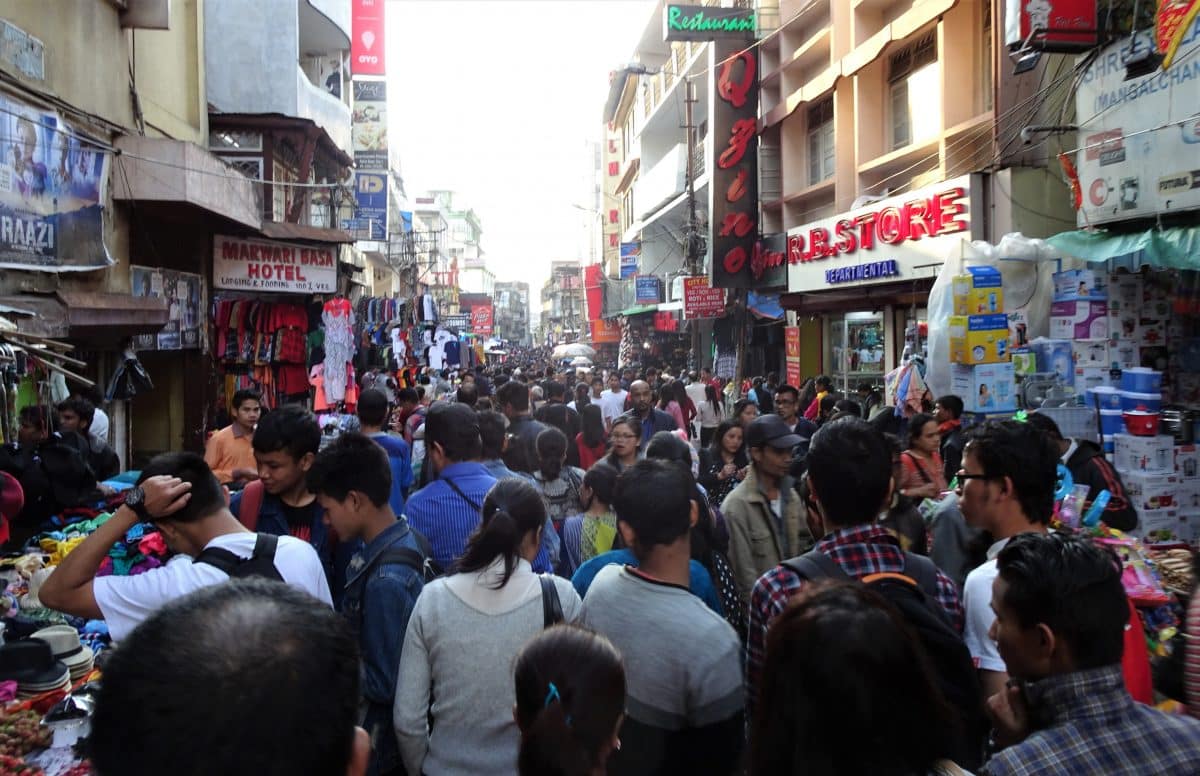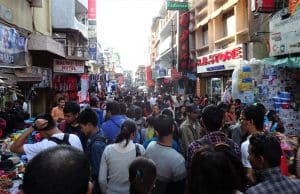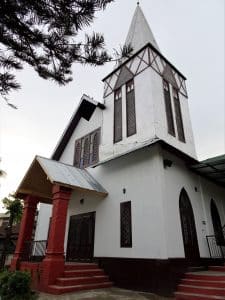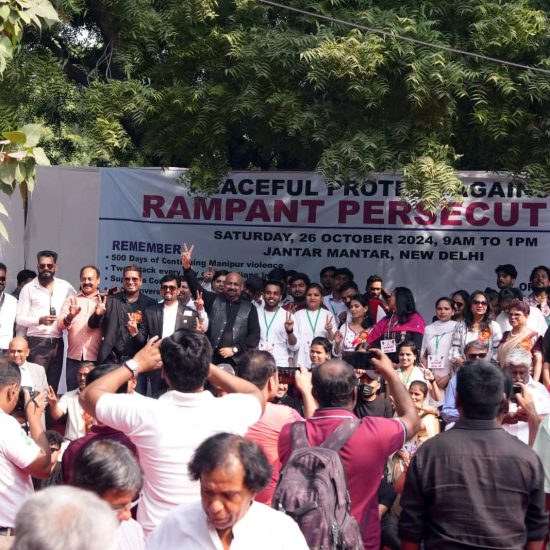
As coronavirus started growing in the world’s second-most populous country, India’s government responded March 24 with a nationwide lockdown to prevent the pandemic’s spread in the congested country — a disruptive response that created even more ministry needs for Baptists there to address. In the middle of an already-challenging ministry context, Indian Baptists are now also worshiping online and helping people impacted by the lockdown.
As of April 1, more than 928,000 people globally have been infected with the COVID-19 respiratory disease caused by coronavirus, and more than 46,000 have died. In India, about 2,000 have tested positive with more than 55 dead. More than 130 cases were tied to events at one mosque, and several others to interactions with a Sikh priest. However, given the country’s massive population, it’s rate of infection is just one per one million people, while the U.S. rate of infection is 638 per million and Italy is 1,829 per million.

A crowded market street in Shillong India (in the Northeast state of Meghalaya), in 2018. (Brian Kaylor/Word&Way)
Although the number of confirmed cases remains low in India so far, the densely-populated public transportation, streets, and markets — along with areas of extreme poverty where many people lack adequate access to water — led government officials to fear the virus could spread quickly. Models on the outbreak’s potential in India showed it might soar to as many as 500 million people infected in a nation with fewer than 50,000 ventilators and one-fourth as many hospital beds per 1,000 persons as in the United States.
Thus, after Prime Minister Narendra Modi requested a 14-hour voluntary curfew on March 22, he two days later ordered a 21-day lockdown for the nation’s 1.3 billion people. The sudden order left an estimated 139 million migrant workers — who travel from their rural homes to work in large cities — stranded without transportation or income.
A.K. Lama, a Baptist leader in Northeast India where few cases of coronavirus have thus far emerged, told Word&Way that when first asked for comment last week he “didn’t have much to report” because of silence resulting from “a very strict implementation of lockdown of every house by the local police.”
But, he added, that changed after the government relaxed the lockdown “as millions of poor immigrant workers came out on the road to find their ways to home.” The changes included encouragement of non-governmental agencies to assist the migrant workers.
“They were hungry and thirsty with no money to buy, and no transportation. Some walked hundreds of miles only to collapse on the road,” Lama explained on March 31. “I am glad to inform you that many Baptist churches grabbed such an opportunity to come out in public to help the poor and the needy. Last three days have been days of good works.”
He listed a few examples from the Northeast region where most Baptists in India live, including 19 Baptist associations joining with other Christian groups to raise 14.9 million Indian rupees (equivalent to more than $19,400) to assist with the COVID-19 relief efforts in Indian state of Arunachal Pradesh. Lama also mentioned the Garo Baptist Convention (churches among the Garo people mostly in the Indian state of Meghalaya) distributed free masks to the public, and have been distributing food and other essential goods to everyone regardless of religion, ethnicity, or caste.
“I am sure there are other good news, but because of lockdown we are cut off,” Lama added.
In addition to creating new ministry needs for churches to address, the virus and the lockdown have also resulted in the canceling of many denominational meetings and church services.
“Most Baptist churches invited members to remain in prayers and fasting on March 27 and some called on March 29,” Lama said. “Most of the programs and annual gathering of the Baptist churches in the Northeast are postponed or canceled during this lockdown period till the end of April 2020. We continue to live with uncertainty.”

Guwahati Baptist Church in Guwahati, India (in the Northeast state of Assam) in 2018. (Brian Kaylor/Word&Way)
Even before this uncertainty, Baptists in India faced challenges as a minority faith in a country with rising Hindu Nationalism. Christians account for just 2.3 percent of the country’s population, far behind Hindus (79.8 percent) and Muslims (14.2 percent). However, Christians actually account for a majority of the population in four of the eight states in Northeast India — and Baptists are more than 75 percent of the population of the Northeast state of Nagaland, making it the most Baptist state or province in the world.
The religious minority status in most of India has brought persecution for Christians. The U.S. Commission on International Religious Freedom lists India as a “tier 2” nation (the second-worst category) and noted that “over the last decade, conditions for religious minorities in India have deteriorated” In 2018, the national government refused to grant a visa to Baptist World Alliance President Paul Msiza to visit Northeast India.
Samuel Bontha, a Baptist pastor in Hyderabad in south central India where Christians are a minority, offered thoughts about the impact of coronavirus from India’s fourth-largest city (with more than 6.8 million people). He told Word&Way that given India’s large population, if coronavirus erupts “like China or Italy here, the death rates will be uncountable and the situation will be worse.”
Like Lama, Bontha mentioned how the crisis is impacting churches, including moving worship online instead of in-person. Bontha has led his church’s service on Facebook Live since March 15, and has been giving daily devotionals there as well.
“The churches are been closed for the past two weeks and it will further continue for some more weeks,” he wrote on March 30. “Every church is making use of God-given technology to spread the good news of the Gospel from their respective places.”
“A great change is taking place among the believers and the seriousness of God has come into their lives. The Christian church today has come together, leaving all the other issues to fight against the coronavirus,” he added. “The church has taken responsibility to strictly follow and cooperate with the government by following the lockdown principles and to bring awareness among its members how to protect and take precautions towards this pandemic.”
Despite the unique challenges, Bontha remains hopeful.
“We never ever thought in our mind that we face a days and situation like this,” he said. “By the grace of God, we are doing well.”






